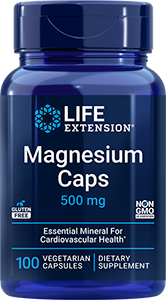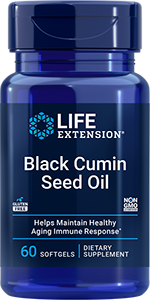
Newsletter
Newsletter
Omega-3 with or without vitamin D linked to biomarker improvements in Nonalcoholic Fatty Liver Disease

Findings from a trial reported on January 24, 2022, in the European Journal of Nutrition suggest that fish oil and vitamin D may help improve Nonalcoholic Fatty Liver Disease (NAFLD).1
The trial included 93 patients with an average age of 56 years who were diagnosed with NAFLD by abdominal ultrasound. For three months, participants received 1,680 IU (42 mcg) vitamin D3 plus 2.34 grams per day of the omega-3 fatty acids EPA and DHA, EPA + DHA alone, or a corn oil placebo.
Compared to the placebo group, men and women who received vitamin D plus fish oil showed improvements in an important liver enzyme called ALT, a biomarker of liver injury that is often elevated in NAFLD, and certain pro-inflammatory cytokines. Compared to the beginning of the study, individuals receiving fish oil alone and fish oil with vitamin D also had decreases in waist circumference.
More good news: those receiving both fish oil and vitamin D experienced decreases in triglycerides and fasting insulin compared to the beginning of the study and the placebo group. This result is particularly important, because insulin resistance can play a pivotal role in the initiation and the progression of NAFLD, and accumulation of excess triglycerides in the liver is a primary manifestation of the disease.
“Considering poor compliance of lifestyle intervention and the side effects of pharmacological treatment, an effective and safe therapeutic approach is urgently needed for management and treatment of NAFLD,” the authors of the report noted.
Products
Apply What You've Learned: Non-Alcoholic Fatty Liver Disease
- There are two subtypes of non-alcoholic fatty liver disease (NAFLD): NAFL, characterized by fat accumulation, and nonalcoholic steatohepatitis (NASH), in which there is inflammation in addition to fat accumulation. NAFLD occurs more often among individuals who have obesity or type-II diabetes.2 For this and other reasons, it is important to maintain a healthy weight and healthy blood glucose levels.
- In addition to maintaining a healthy weight, individuals with NAFLD may be advised by their physicians to participate in regular physical activity and to minimize alcohol consumption.2
- Supplementing with vitamin E has been shown in several studies to help improve liver enzymes, liver fibrosis, inflammation, liver fat and other factors among people with NAFLD.3
- Could you be one of the many individuals who have silent NAFLD? Many people are unaware that they have this common condition. Regular blood work, including a chemistry panel, can reveal abnormalities in liver enzymes that may suggest NAFLD or other conditions. If your physician suspects NAFLD, he or she will order additional testing which may be followed by ultrasound or other imaging and/or a liver biopsy.
References
- Guo XF et al. Eur J Nutr. 2022 Jan 24.
- Nonalcoholic fatty liver disease (NAFLD) & NASH. National Institute of Diabetes and Digestive and Kidney Diseases. 2021 Apr. https://www.niddk.nih.gov/health-information/liver-disease/nafld-nash
- Vadarlis A et al. J Gastroenterol Hepatol. 2021 Feb;36(2):311-319.
Featured Life Extension Magazine® Article
Curb Hunger and Burn Fat, by Marsha McCulloch, MS RD
Anyone who’s dieted knows that attaining and maintaining a healthy weight is challenging. The primary reasons for this conundrum have to do with dieting-induced changes in metabolism and appetite hormones.
Natural solutions are available for those who find that healthy weight maintenance is a struggle. An extract of hibiscus flower has been shown to decrease fat cell accumulation of triglycerides and inhibit the formation of new fat cells. Lemon verbena extract also has an ability to reduce fat cell triglyceride accumulation. When used together, these extracts were shown to modulate satiety/hunger hormones, help curb appetite and promote weight loss in clinical trials. They work best in combination with a healthy diet and regular exercise.
What's Hot
Health Concern
Turmeric intake associated with improved liver enzymes in NAFLD patients
A randomized, double-blind trial reported on October 18, 2021 in Diabetology & Metabolic Syndrome resulted in improvements in liver enzymes among men and women with nonalcoholic fatty liver disease (NAFLD) who received turmeric supplements in comparison with a placebo.

Diabetes and Glucose Control
This protocol explains the difference between type 1 and type 2 diabetes, and how elevated blood sugar, even within the normal range, can damage tissues throughout the body.
Related Life Extension Magazine® Articles

Protect Against Fatty Liver with Targeted Probiotics
Close to 80 million Americans are afflicted with nonalcoholic fatty liver disease. A blend of probiotics and a prebiotic has been shown to reduce severity and stop liver destruction.

Milk Thistle Promotes Liver Detoxification
Liver deaths have jumped 65% in recent years because of an increase in non-alcoholic fatty liver disease largely due to obesity. Standardized milk thistle extracts have demonstrated remarkable protective and restoration effects on liver health.
Life Extension Magazine® Issue Now Online
A remarkable number of healthy-longevity findings have been published over the past 18 months.




